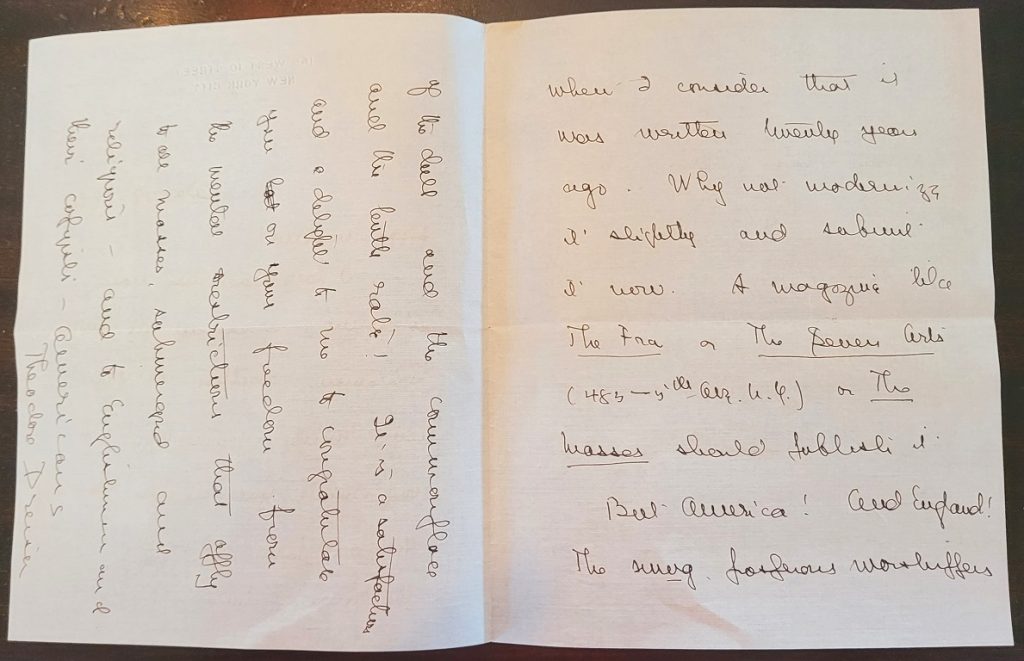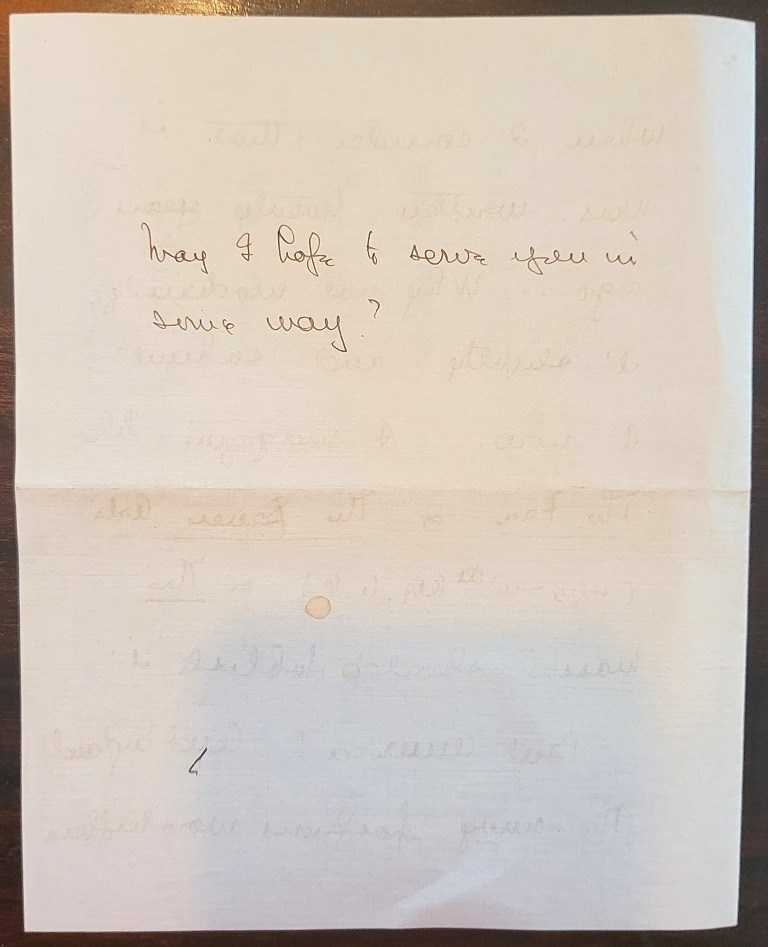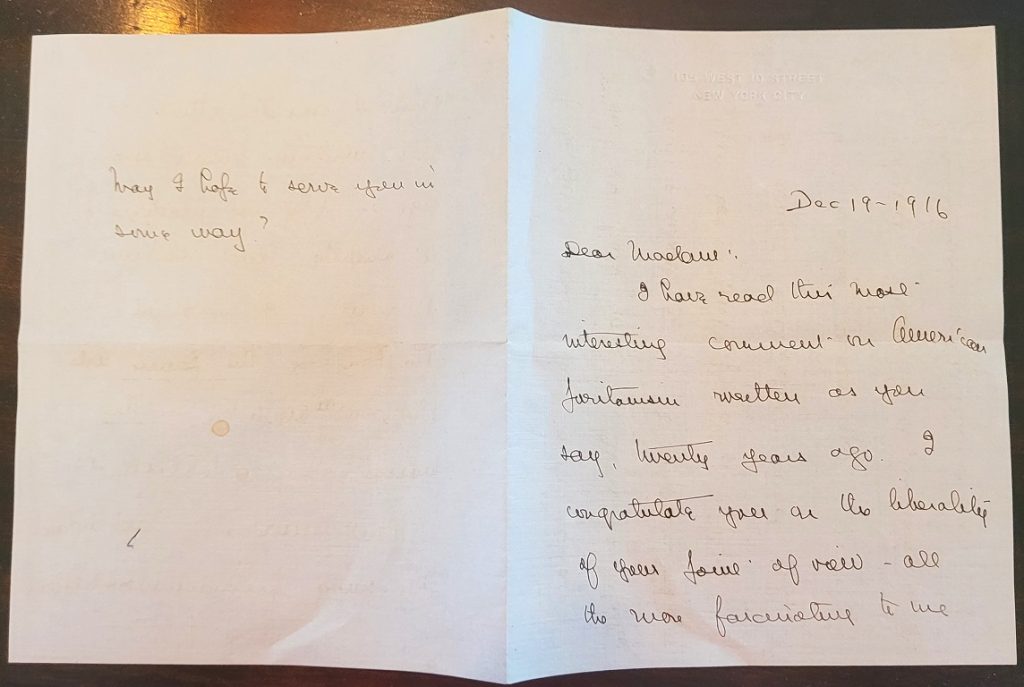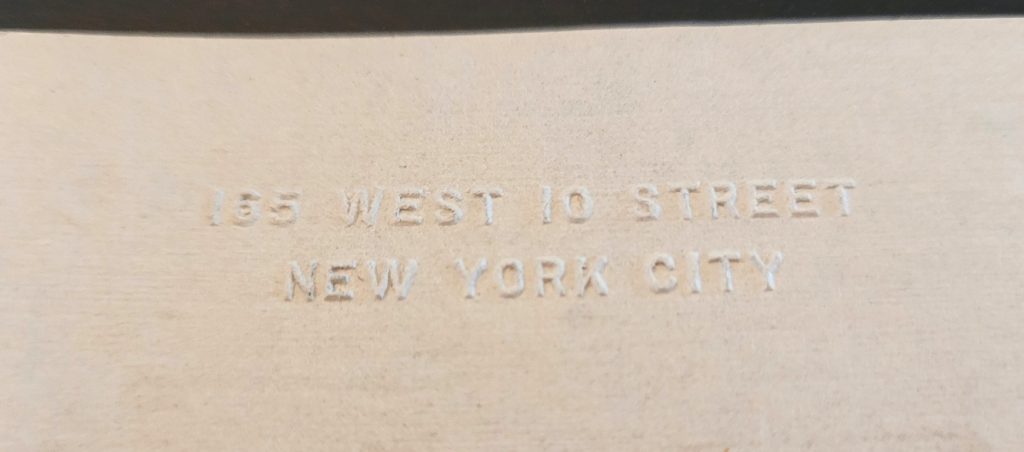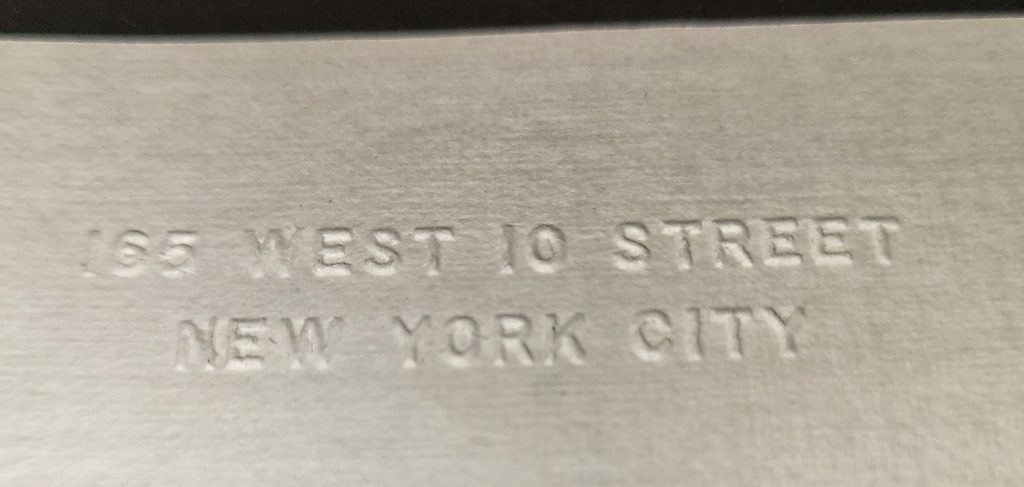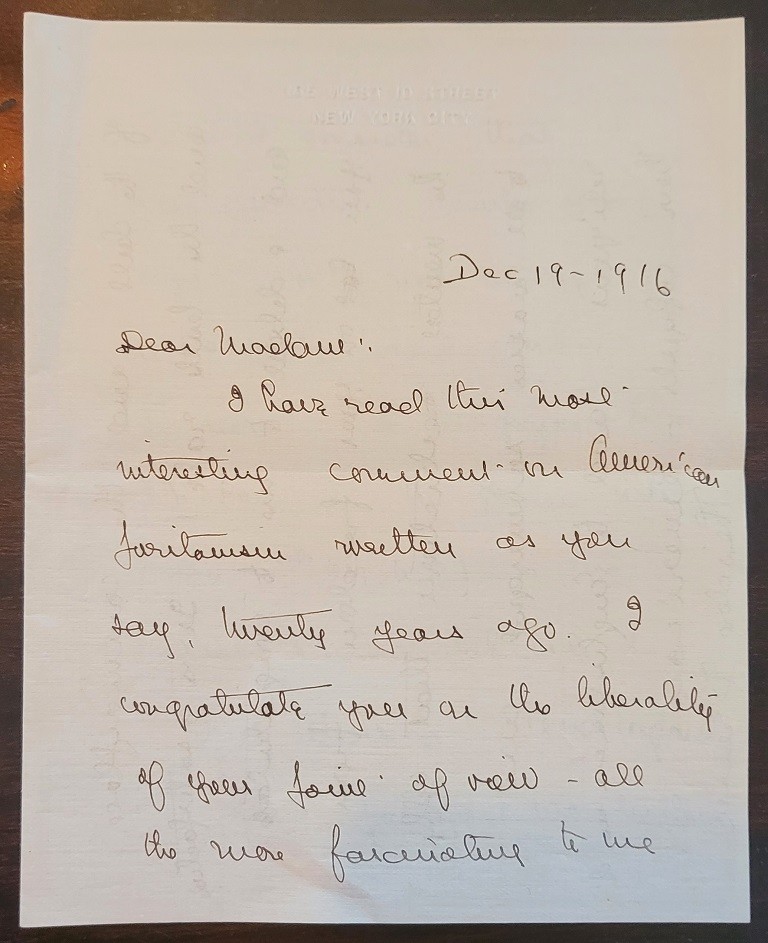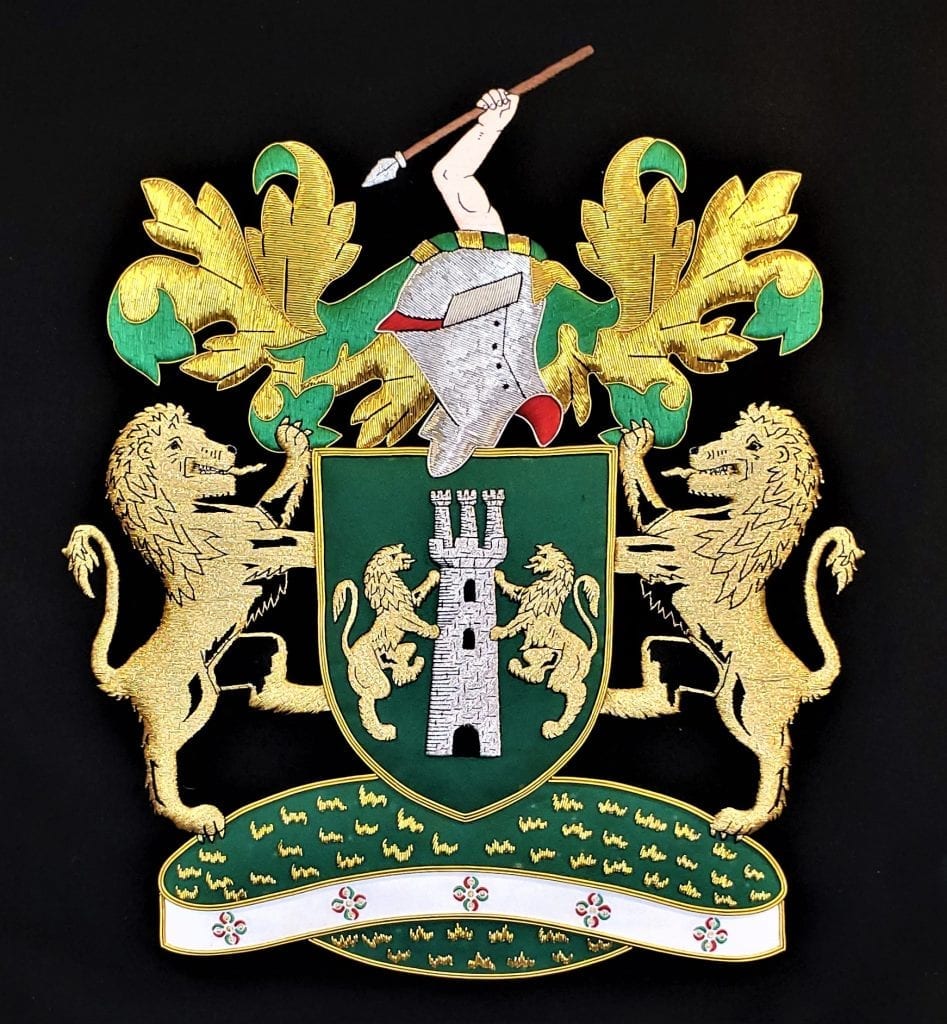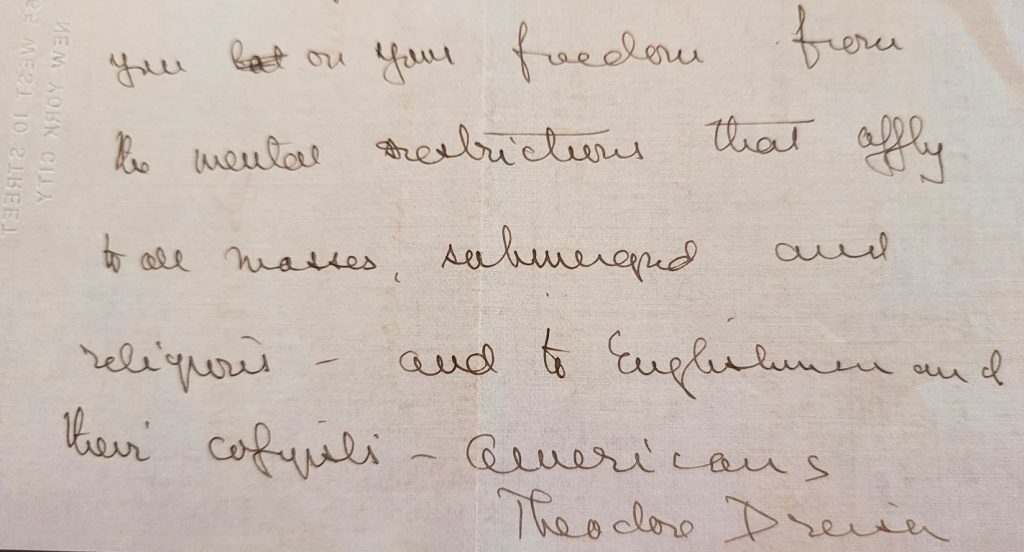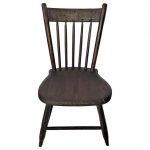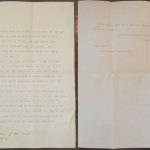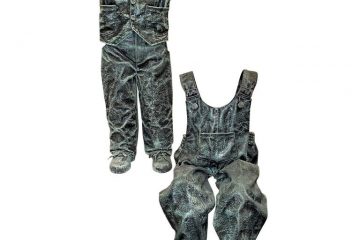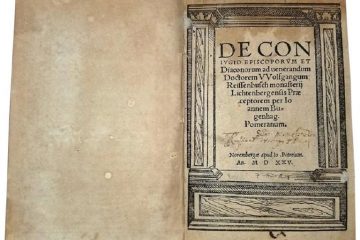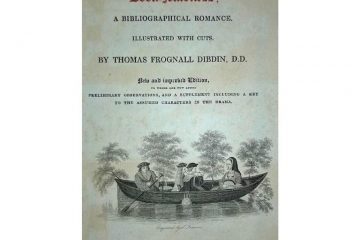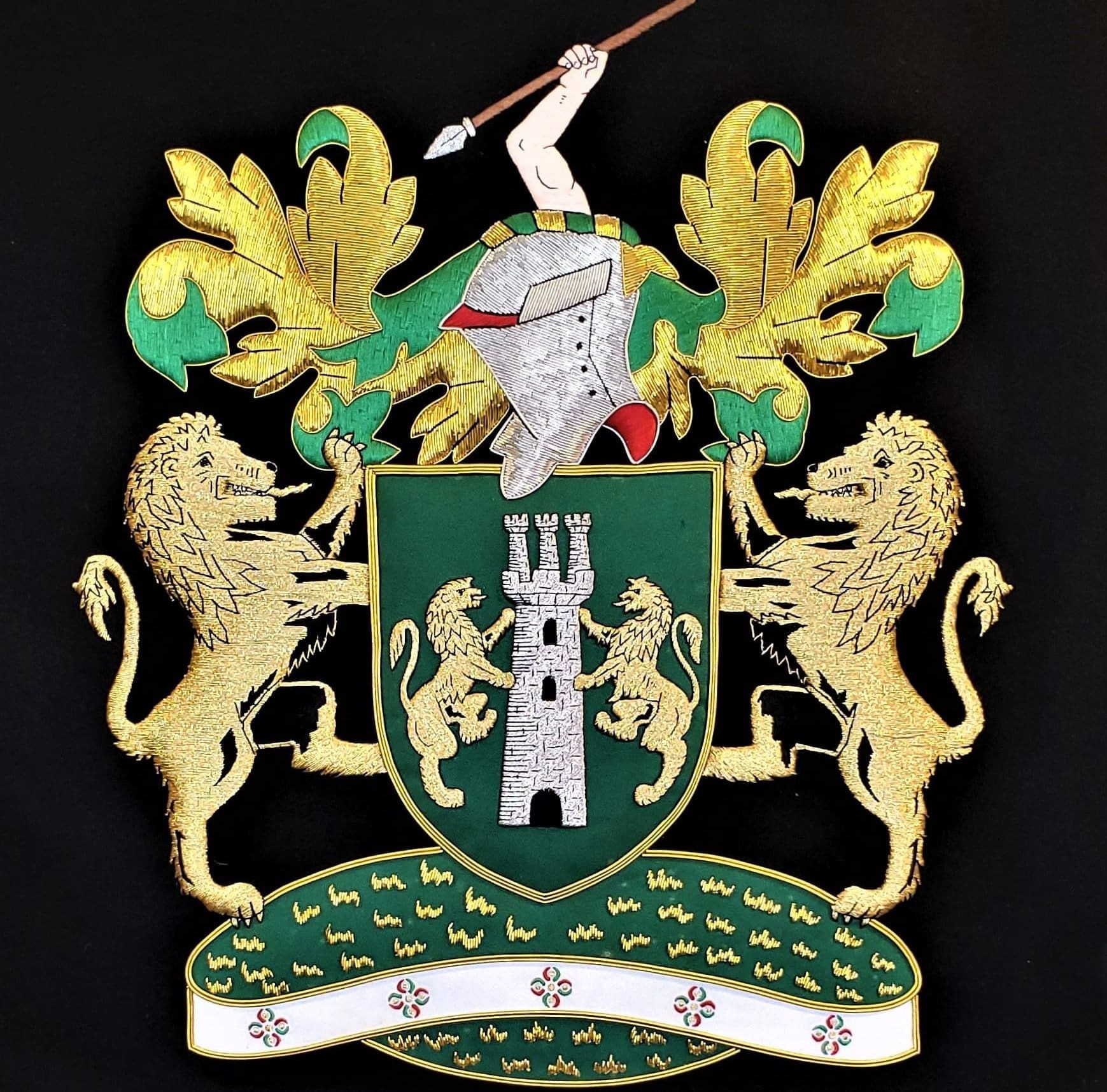Letter from Theodore Dreiser dated 19 Dec 1916 to Eliza Calvert Hall
PRESENTING A FABULOUS Original hand-written Letter from Theodore Dreiser dated 19 Dec 1916 to Eliza Calvert Hall.
The letter is entirely hand written with pen and signed by the renowned author, Theodore Dreiser, It consists of a single folio folded in 2, with writing on all sides (4 pages of content).
We do not have the original envelope and it is simply addressed to “Dear Madam” but we know it was sent by Dreiser to Eliza Calvert Hall Obenchain (a fellow author).
The letter has an imprinted/personalized stamp at the head of the 1st page with Dreiser’s address: 165 West 10th Street, New York City.
The Letter Reads:
“Dec 19 – 1916
Dear Madam,
I have read this most interesting comment in American Furitamism(?) written as you say, twenty years ago. I congratulate you on the liberality of your fame of new – all the more facinating to me when I consider that it was written twenty years ago. Why not modernize it slightly and submit it now. A magazine like The Fra or The Seven Arts (483- 5th Ave. M.Y.) or The Masses should publish it.
But America! And England!
The smug tortuous (?) worshippers of the dull and commonplace and the lentle (?) rate (?)! It is a satisfaction and a delight to me to congratulate you on your freedom from the mental restrictions that apply to all masses, submerged and religious – and to Englishmen and their coequals(?) – Americans
Theodore Dreiser
May I Pray to serve you in any way?”
The content of the letter is interesting. It appears that Dreiser is congratulating Lida on her articles, letters and publications which she wrote as part of her involvement in the Women’s Suffrage Movement of the late 19th Century and Early 20th Century.
Dreiser was clearly a fan of that movement and as you can see from his letter, ‘rails’ against the people who suppressed the movement – mainly, America and England.
Theodore Herman Albert Dreiser (/ˈdraɪsər, -zər/; August 27, 1871 – December 28, 1945) was an American novelist and journalist of the naturalist school. His novels often featured main characters who succeeded at their objectives despite a lack of a firm moral code, and literary situations that more closely resemble studies of nature than tales of choice and agency. Dreiser’s best known novels include Sister Carrie (1900) and An American Tragedy (1925).
Dreiser was born in Terre Haute, Indiana, to John Paul Dreiser and Sarah Maria (née Schanab). John Dreiser was a German immigrant from Mayen in the Rhine Province of Prussia, and Sarah was from the Mennonite farming community near Dayton, Ohio. Her family disowned her for converting to Roman Catholicism in order to marry John Dreiser. Theodore was the twelfth of thirteen children (the ninth of the ten surviving). Paul Dresser (1857–1906) was one of his older brothers; Paul changed the spelling of his name as he became a popular songwriter. They were raised as Catholics.
According to Daniels, Dreiser’s childhood was characterized by severe poverty, and his father could be harsh. His later fiction reflects these experiences.
After graduating from high school in Warsaw, Indiana, Dreiser attended Indiana University in 1889–1890 without taking a degree.
Dreiser often was forced to battle against censorship because his depiction of some aspects of life, such as sexual promiscuity, offended authorities and challenged popular standards of acceptable opinion. In 1930 he was nominated for the Nobel Prize in Literature by Swedish author Anders Österling, but was passed over in favor of Sinclair Lewis.
Link: https://en.wikipedia.org/wiki/Theodore_Dreiser
Letter from Theodore Dreiser dated 19 Dec 1916 to Eliza Calvert Hall.
Provenance: From the Eliza Calvert Hall Estate
Condition. Very good. Some slight yellowing of the paper with age and one minor spot on the back page. Kept in an acid free plastic pouch.
Dimensions: 6.75 inches tall and 5.4 inches wide.
SALE PRICE NOW: $1,800
